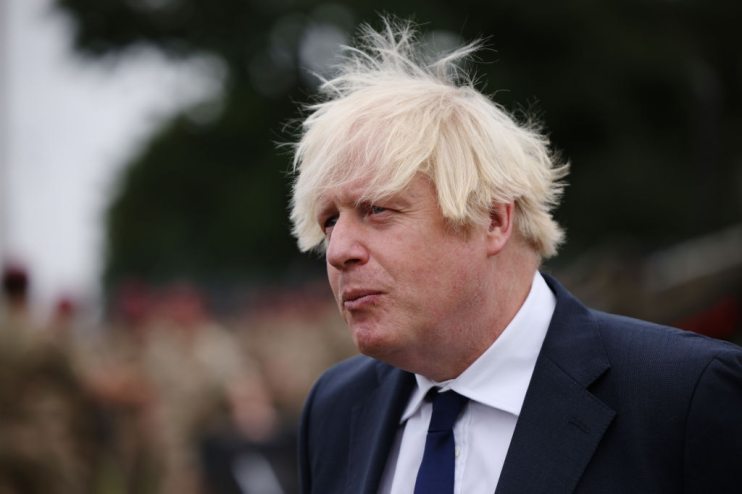Johnson could use the meal deal moratorium to finally find some values

A week ago the government announced that it was delaying the introduction of a ban on so-called BOGOF (buy one, get one free) offers on food and drink high in salt, fat or sugar. The prohibition, intended to help reduce overconsumption and therefore obesity, was deferred, according to the Department of Health and Social Care, to allow ministers to assess the impact on household budgets amid rising living costs.
In political terms, this was a no-brainer: inflation is now centre-stage after an almost generation-long absence, and it is feared that prices may stay high even as inflation ebbs away over the next year or two. The effect on the cost of living, the prices of basic and essential items and services, is immediate and noticeable, and the government understands that this could be a fatal weakness to its chances of re-election in 2023 or 2024.
There has been significant opposition to the delay. Jamie Oliver, the celebrity diet scold, called it a “wasted opportunity”, while a professor of medicine at Queen Mary accused the prime minister of “giving in to his own MPs”, a slightly peculiar charge when examined closely. One children’s charity dismissed the move as “delaying and dithering”.
Disappointment from the health lobby which seeks ends without regard to the means was inevitable: their position is clear and consistent, and applies to every hazard to public health from smoking to Maltesers. And their motivation is noble enough: obesity costs the NHS more than £6bn a year, as well as bringing a swathe of bad outcomes which can affect the poorest in society worst.
As we have come to expect from this government, this is a holding position rather than a declaration of unambiguous principles. The ban is still theoretically scheduled for October 2023, and a 9.00 pm watershed for advertising of unhealthy foods is still slated for January 2024. It does not take a conspiracy theorist to note that those dates fall potentially after the next general election.
One of the most dangerous – and most accurate – criticisms of the government in recent weeks has been that it lacks direction. For those of us with longer memories, there is a sense of drift reminiscent of the later Major years of the mid-1990s; the incumbent administration became purely reactive, buffeted by the weather but unable to make headway against it. Losses in either, let alone both, of next month’s by-elections would add to the nostalgia. In party and news management, John Major is not an example any predecessor would seek to emulate.
Boris Johnson could arrest some of this drift by declaring his vision and principles. The delayed action against obesity, while a relatively small thing, is in some ways illustrative: is he a Whitehall-knows-best enthusiast for state power, as has sometimes seemed to be the case during the pandemic? Or is he at heart a laissez-faire merry monarch, seeing freedom to choose as the highest goal for his people? Deciding that question would make the next steps on obesity very easy to decide.
A lot of Conservatives fear that the truth is a third way. Although his enthusiasm may have been dampened by its starring role in Partygate, the prime minister famously said “My policy on cake is pro having it and pro eating it.” More broadly, one recalls Johnson’s earliest recorded ambition, to be “world king”, and that may still be his lodestar. Policy is not important to him except insofar as it furthers his own interests, which is why he has, to be charitable, been able to be ideologically agile over the past decade.
The prime minister may not be forced to choose. But the Conservative Party must, if it is to avoid electoral defeat and perhaps catastrophe. It has always been a broad church, from Butskellism to Hayek and the Manchester school, but the public wants to know what it’s for. It risks becoming simply the vehicle of Johnson’s continuing career, and that is not enough.
Although the recent decision by the Metropolitan police not to issue any more fines to the prime minister has eased the pressure on him, there will come a time when he is no longer in office. The Conservative Party cannot afford to wait until then to look around and discover that it no longer knows what it stands for.